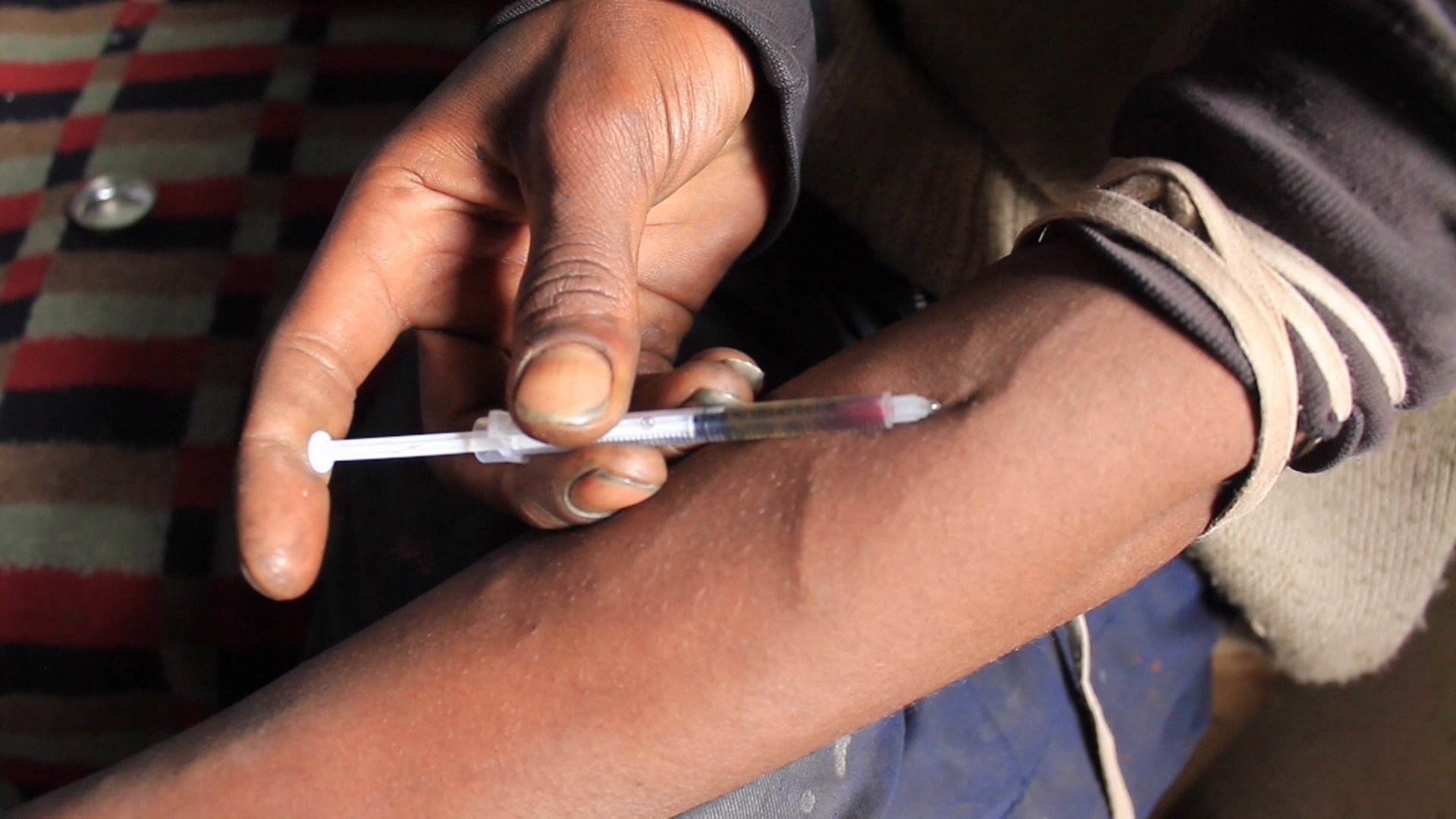In recent weeks, a drug trend has emerged in South Africa, causing concern within communties. While Nyaope has for years been spreading within the country, particularly within townships, aptly called “Bluetooth”, the new trend refers to a method where drug users inject themselves with the blood of another person who is high so that they can also receive the drug. The practice has sparked concern, as it increases the risk of the spread of diseases, such as HIV, Hepatitis B and Hepatitis C.
Dr Kebongile Mokwena, from the Sefako Makagtho Health Sciences University, began her research on Nyaope in 2012, and began studying the behavioural trends amongst Nyaope users. From February 20, 2017, her study will focus on the chemical affects that Nyaope has on the brain.
“We believe that Nyaope may be having some changes in the brain, after looking at how [individuals] behave,” she told VOC.
With regards to the Bluetooth trend, Mokwena says that “logically” the amount of blood that is exchanged would not provide the recipient of the blood with enough blood to get a high.
“We are careful not to make conclusion based on hear-say, but I discussed with a microbiologists and I queried the effectiveness of that high and she also agrees with me that it probably doesn’t give that high. So we still want to find out what makes them think that they have a high and even whether they actually do have a high. But, logically it cannot be,” Mokwena elaborated.
She, however, asserts that the exchanging of blood is accompanied by various side effects and risks.
The first being the reusing of needles by drug users, who being untrained individuals may injure themselves.
“They are not health professionals and they don’t know where to inject, so they can actually do a whole lot of anatomical damage to their veins and tissues.”
Mokwena says that with the exchange of needles, the chance of the spread of disease increases, further adding that given the fact that individuals’ may not have compatible blood types, ‘Bluetoothing’ increases risks to one’s health.
“You may have Type A blood and you may be injecting it into someone who has Type B blood; so it’s a whole of lot of risks that are involved with this practice.”
She notes that thought she has not as yet personally investigated ailments associated with the practice of ‘Bluetoothing’, she has heard of Individuals who have fallen sick, as well as those who have contracted infections that resulted in gangrene.
As the concept of ‘Bluetoothing’ is fairly new, having been circulating within the past two weeks, Mokwena says that she has not begun the study of its impact, but is developing a protocol o specifically address the issue of Bluetoothing.
“It is an emergency, so we really need to look at that and we have to go to our surgical wards and train those people who come as a result of the Bluetooth practice,” she continued.
Mokwane says that following a fact finding mission, since the emergence of Bluetooth, the researchers are developing a national communication strategy that will be directed toward highlighting the dangers associated with the practice. VOC






 WhatsApp us
WhatsApp us 

